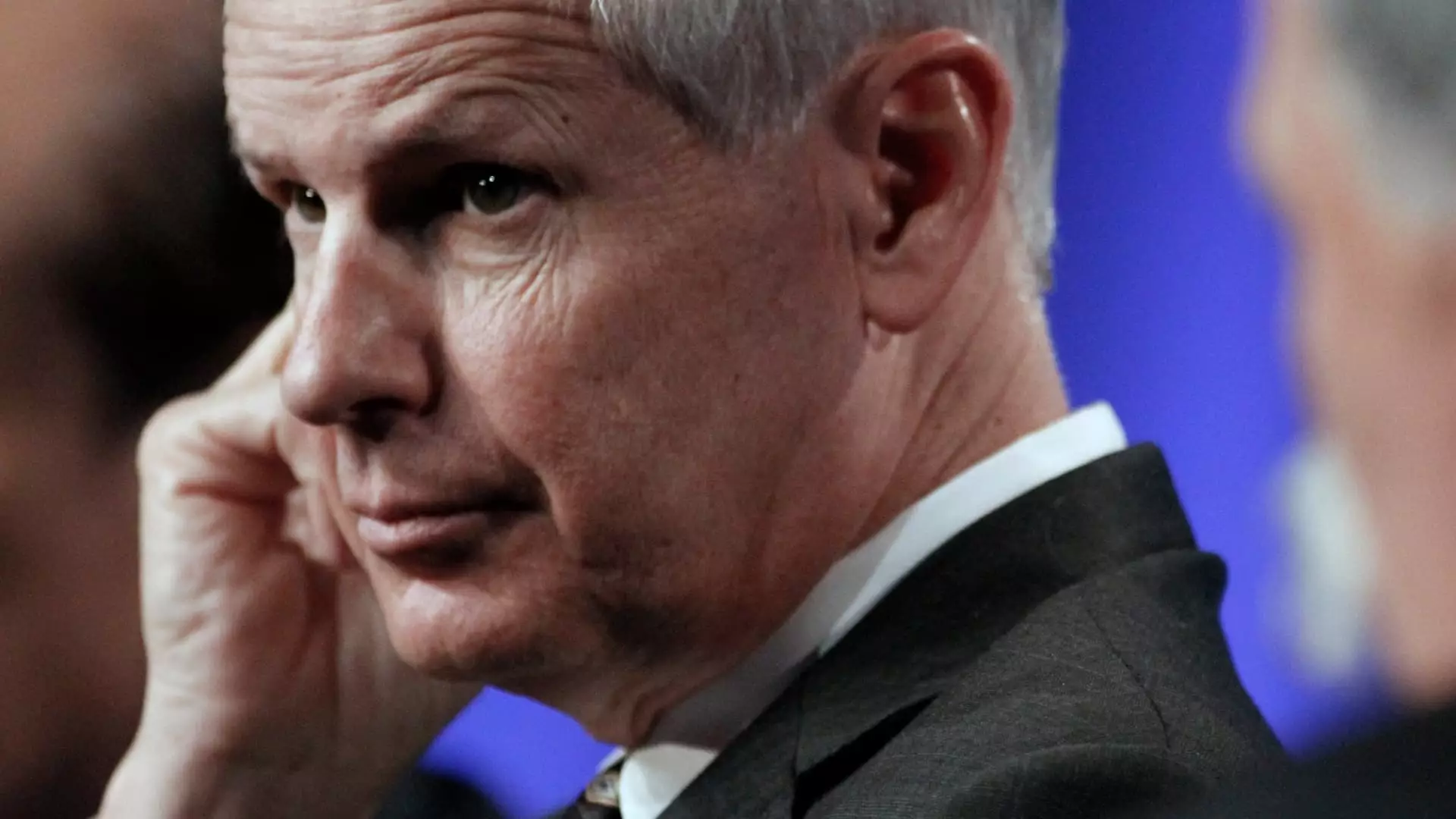The pay-TV landscape, once dominated by satellite providers, is undergoing a pivotal transformation as Charlie Ergen, the founder of EchoStar, approaches a potential sale of Dish Network. This development signals a watershed moment not just for EchoStar, which has been a player in the market for over four decades, but also for the satellite television industry at large. As reports emerge that EchoStar is in advanced negotiations to sell Dish Network to DirecTV, which is backed by private equity and telecommunications giant AT&T, the implications for the sector could be profound.
Discussions regarding the sale have intensified, with sources indicating that a deal could potentially be finalized as early as Monday. However, the complexity and fragility of these talks cannot be overstated; the possibility of failure looms large if regulatory concerns or financial distress arise. The backdrop of EchoStar’s $1.98 billion impending debt, due this November, adds a sense of urgency to the negotiations, coupled with the company’s precarious financial position, showcasing just how critical this transaction may be.
The financial predicament that EchoStar finds itself in reveals the stark realities of the current pay-TV market. As of mid-2023, EchoStar’s liquidity was a mere $521 million, and forecasts for future cash flows were disheartening, anticipating negative trends throughout the remainder of the year. In this context, the potential merger with DirecTV is viewed not only as a means of combining resources but as a necessary step towards avoiding bankruptcy. Analysts, such as Craig Moffett from MoffettNathanson, have speculated that bankruptcy may be imminent unless new capital can be secured promptly.
The proposed transaction is reportedly structured as an all-cash deal, with DirecTV aiming to acquire not only Dish’s satellite operations but also its digital streaming service, Sling TV, along with associated liabilities. Valued at over $9 billion, this deal epitomizes the urgent need for both companies to solidify their market positions amid subscription declines, marking a significant consolidation in an industry beset by challenges from streaming services.
The pay-TV sector has witnessed a seismic shift over recent years, exacerbated by consumer preferences leaning increasingly towards streaming platforms like Netflix and Disney+. Traditional operators have been seeking ways to innovate and reach audiences who favor on-demand content over conventional bundled offerings. As of the latest figures, Dish Network reports 6.1 million satellite customers alongside an additional 2 million subscribing to Sling TV. Similarly, DirecTV, which has seen a drop in its subscriber base from 15.4 million in 2015 to around 11 million today, is faced with the necessity of transforming its business model to include robust streaming services.
The engagement strategies of these companies have adjusted in response to market trends. DirecTV, for instance, launched an advertising campaign aimed at dispelling the myth that its services rely solely on satellite dishes. Such tactics reflect a broader recognition that simply relying on traditional technologies may no longer suffice in retaining customer loyalty. DirecTV’s recent skirmishes in contract negotiations, particularly with Disney over content access, underscore the volatility of these relationships, as consumers expect uninterrupted access to high-demand channels.
Should the proposed merger between EchoStar and DirecTV come to fruition, it could reshape the competitive landscape of the pay-TV industry. The consolidation could lead to operational efficiencies and broaden offerings for consumers as the new entity works to address the challenges posed by the streaming revolution. Nevertheless, the success of such a move hinges on navigating regulatory hurdles and managing the complex interplay of debt obligations.
As the pay-TV giants grapple with transitioning consumer behaviors and looming financial uncertainties, the potential Dish Network-DirecTV merger represents both a challenge and an opportunity. The future of EchoStar, in particular, hinges on the outcome of these negotiations and their ability to adapt to an ever-evolving entertainment landscape. Whether this deal will bolster their viability or merely delay the inevitable remains a significant point of uncertainty in an industry striving to reclaim its audience.

